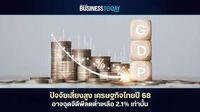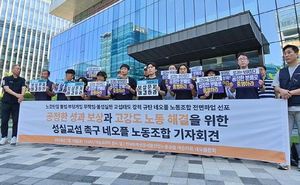As Thailand navigates a complex economic landscape, projections for 2025 reveal a cautious outlook. Mr. Methas Rattanasorn, a senior economist at TISCO Economic and Strategy Analysis Center, estimates that the Thai economy is set to expand by just 2.8%. However, this growth is not without its challenges, particularly in light of potential external factors that could hinder progress.
One of the primary concerns is the impact of U.S. tax measures, which could reduce Thailand's economic growth by as much as 0.35-0.50%. Furthermore, the tourism sector faces significant risks, especially regarding the safety perceptions of Chinese tourists. Recent reports of kidnappings and scams have led to a notable decline in hotel bookings, with many tours being canceled. If these trends continue, the number of foreign tourists entering Thailand could dip below last year’s figure of 35.5 million, potentially dragging GDP growth down to a mere 2.1%.
In response to these economic pressures, the Bank of Thailand (BOT) has taken decisive action. In its first meeting of the year on March 2, 2025, the BOT decided to lower its policy interest rate to 2%, a move that diverges from its previously hawkish stance. The BOT cited a weaker-than-expected economic environment and increasing negative risks as reasons for this adjustment. Nonetheless, officials emphasized that this should be viewed as a balancing act rather than the beginning of a downward interest rate cycle.
If the economy manages to maintain its projected growth rate of 2.8%, the BOT may keep the interest rate steady at 2.00% throughout the year. However, should the aforementioned risks materialize, further reductions in the policy rate could occur, potentially lowering it to between 1.50% and 1.75%.
Mr. Komkrit Prakobpol, head of the TISCO Economic and Business Analysis Center, advised investors to recalibrate their portfolios in light of these developments. He suggested focusing on industries that would benefit from corporate tax reductions and those heavily reliant on the U.S. market to mitigate risks associated with trade tensions. He noted that U.S. financial institutions continue to show robust growth due to widening interest rate margins and favorable regulatory policies that enhance profitability.
In a more alarming scenario, if the trade war escalates and the U.S. imposes a 10% import tariff on trading partners, the impact on the profits of U.S.-listed companies could be around 4-5%. However, Komkrit remains optimistic about the stock market, citing positive factors stemming from U.S. economic stimulus policies, including a proposed reduction in the corporate tax rate from 21% to 15%. If implemented, this could boost U.S. corporate profits by approximately 4%, nearly offsetting the adverse effects of potential tariffs.
On another front, the Thai business landscape is undergoing a significant transformation due to advancements in artificial intelligence (AI). During a seminar titled "AI Revolution 2025: A New Paradigm of New World Economic" held on March 27, 2025, Prinya Rungsimaanan, co-founder of Looloo Technology, emphasized the urgent need for Thai businesses to adapt to AI technologies to enhance productivity.
Prinya highlighted that relying on cheap labor is no longer a sustainable strategy in the age of AI. He illustrated how the global economy is currently experiencing an industrial revolution driven by AI, while many Thai companies have been slow to adopt these technologies. He noted that the use of AI across various sectors has led to substantial improvements in efficiency and cost reduction.
For instance, in the manufacturing sector, the use of industrial robots has surged by 50%, inventory costs have decreased by 25%, and the costs of DNA analysis have dropped by 40%. In production, predictive maintenance has saved an estimated 44 million baht and improved productivity by 25%. In tourism, companies like Expedia have replaced human labor with AI in customer service, saving over 1 million hours last year.
Moreover, in agriculture, John Deere's AI-controlled tractors have reduced fertilizer use by up to 90%. In healthcare, AI has improved cancer diagnosis accuracy by 15% and increased overall diagnostic efficiency by 20-30%. The real estate sector has also benefited significantly, with AI contributing to a 2.4-fold increase in property values and a 47% rise in visitor engagement across all sectors.
Prinya stressed that the implications of AI extend beyond mere cost savings; they fundamentally alter existing business models. He urged Thai businesses, especially small and medium-sized enterprises (SMEs), to embrace AI applications more broadly, moving beyond basic implementations to fully integrate these technologies into their operations.
As Thailand grapples with both economic headwinds and the imperative for technological advancement, the path forward demands a delicate balance of cautious optimism and proactive adaptation. The interplay between global economic conditions, domestic policy adjustments, and technological innovation will shape the landscape for Thai businesses in the years to come.






